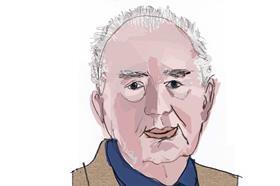It is nearly 35 years since the barrister Billy Rees-Davies QC died. I still think of him, rogue that he was, with great affection. He was very much a ‘horses for courses’ man, but in a case that did not require great delicacy, he was as good as anyone. Like the great Marshall Hall years before him, Rees-Davies would stand up to any judge. In the 1970s, several judges required just that.

There were, however, a number of risks when instructing him. He had a degree of elasticity in his appearance. He maintained, for example, that after hammering the police he should not be the one to plead for leniency for his client. This was left to a junior member of chambers.
His timekeeping was his own. If he did not think evidence would involve his client, he would disappear. On one occasion, he was instructed by a middle-aged and portly solicitor in the West Court at the Bailey. The solicitor was seen by a chevroned usher puffing up the street who called out: ‘No need for you to hurry, Mr H, sir. Your client left for Sotheby’s in a cab half an hour ago.’
As an MP for Dover, Rees-Davies tended to put the electorate before a trial and he got in trouble for attending a ladies’ tea party rather than the Central Criminal Court. But his downfall came when he decided to take one of his daughters to the Ascot Gold Cup.
It was in the middle of a long multi-handed case. He saw the judge, assured him the client would be safe in his junior’s hands because no evidence relating to him was to be called that day, didn’t tell the client and off he went. Of course, the trial suddenly accelerated and a crucial witness was ready for cross-examination. The client, asked if it was OK for the junior to do the job, said it wasn’t. The judge adjourned for the afternoon.
It was a time of cutting out delays and wastage. A stray barrister gratuitously reported matters to the clerk of the court. Billy compounded his bad behaviour by trying to get the client to sign a paper saying he had agreed. At least he was able to give his constituency his undivided attention for the 12 months of his suspension.
James Morton is a writer and former criminal defence solicitor































No comments yet